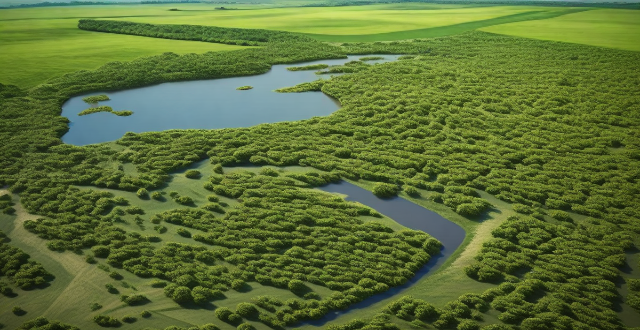Climate change is a significant and long-term alteration in global weather patterns caused by human activities releasing greenhouse gases. These gases trap heat, leading to global warming with various environmental, socioeconomic, and humanitarian impacts. Mitigation and adaptation are crucial for minimizing these effects.

What is Climate Change?
Climate change refers to significant and long-term alterations in the patterns of temperature, precipitation, and other weather conditions across the globe. It is primarily caused by human activities that release greenhouse gases (like carbon dioxide, methane, and nitrous oxide) into the atmosphere. These gases trap heat from the sun, leading to a gradual increase in Earth's average surface temperature, commonly known as global warming.
Effects of Climate Change on the World
Environmental Impacts:
- Melting Glaciers and Ice Sheets: This results in rising sea levels, which can lead to coastal flooding and loss of habitat for many species.
- Extreme Weather Events: More frequent and severe storms, droughts, heatwaves, and heavy rainfall are becoming common due to altered weather patterns.
- Ocean Acidification: As more carbon dioxide is absorbed by oceans, the pH level drops, making it harder for marine organisms to form shells and survive.
- Biodiversity Loss: Many species cannot adapt quickly enough to changing conditions, leading to extinction or endangerment.
Socioeconomic Impacts:
- Food Security: Changes in temperature and rainfall affect crop yields and livestock, potentially leading to food shortages and higher prices.
- Water Resources: Droughts and altered water cycles can reduce freshwater availability, affecting drinking water supplies and agricultural irrigation.
- Health Concerns: Spread of diseases carried by insects and rodents into new areas, air pollution, and heat-related illnesses are increasing health risks.
- Economic Challenges: The cost of adapting to climate change and recovering from extreme weather events places a significant burden on economies, especially in developing countries.
Humanitarian Impacts:
- Displacement of Communities: Rising sea levels and severe weather events force people to leave their homes, leading to internal displacement or migration.
- Conflicts: Competition for resources such as water and arable land can exacerbate tensions between communities and even lead to conflicts.
Mitigation and Adaptation:
While mitigation focuses on reducing greenhouse gas emissions through renewable energy sources and energy efficiency, adaptation involves adjusting to the current and future impacts of climate change, such as building sea walls or developing drought-resistant crops. Both approaches are crucial for minimizing the effects of climate change on our planet.
In conclusion, climate change is a multifaceted issue that requires immediate attention and collective action to protect our environment and ensure the well-being of future generations.